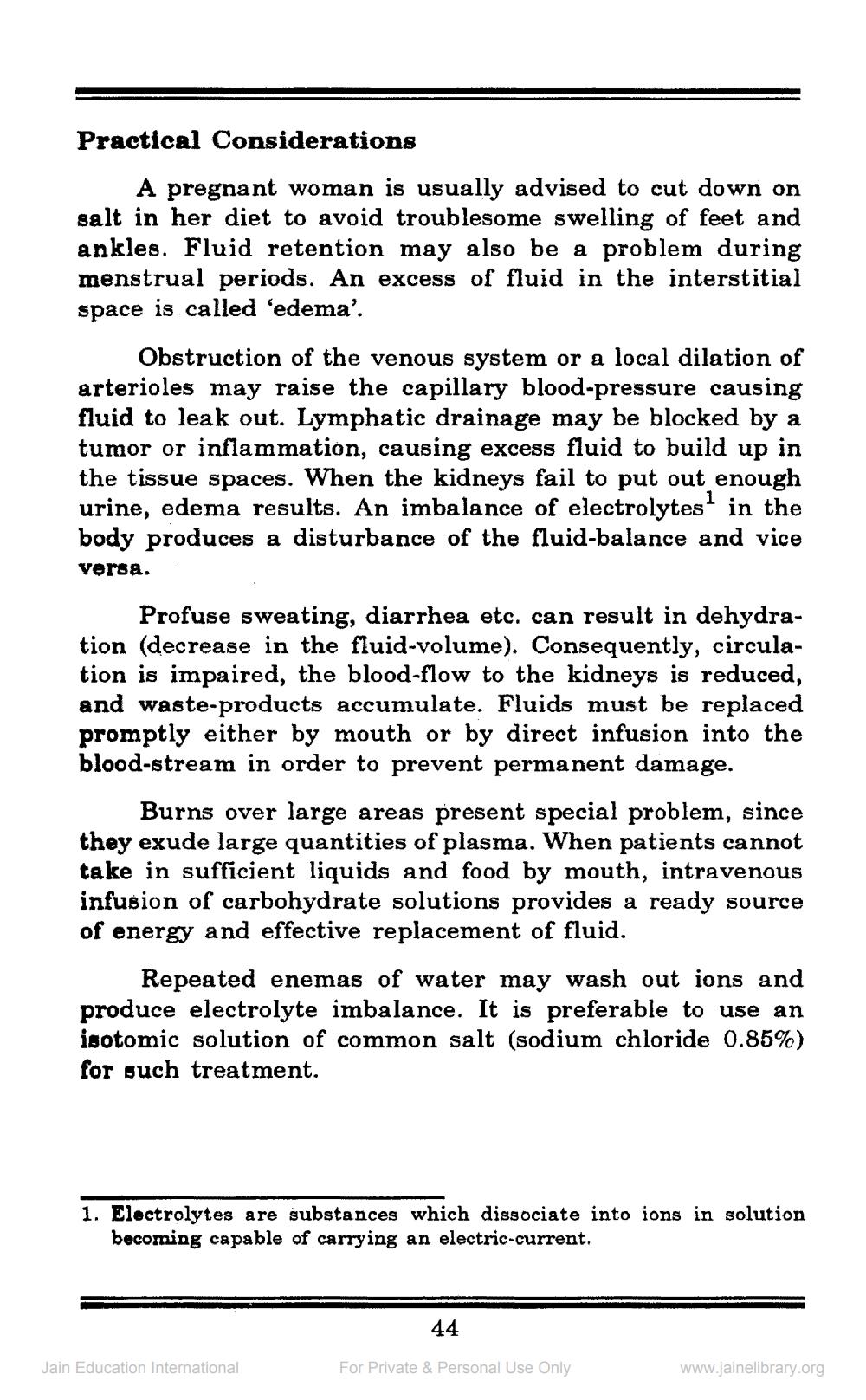________________
Practical Considerations
A pregnant woman is usually advised to cut down on salt in her diet to avoid troublesome swelling of feet and ankles. Fluid retention may also be a problem during menstrual periods. An excess of fluid in the interstitial space is called 'edema'.
Obstruction of the venous system or a local dilation of arterioles may raise the capillary blood-pressure causing fluid to leak out. Lymphatic drainage may be blocked by a tumor or inflammation, causing excess fluid to build up in the tissue spaces. When the kidneys fail to put out enough urine, edema results. An imbalance of electrolytes1 in the body produces a disturbance of the fluid-balance and vice
versa.
Profuse sweating, diarrhea etc. can result in dehydration (decrease in the fluid-volume). Consequently, circulation is impaired, the blood-flow to the kidneys is reduced, and waste-products accumulate. Fluids must be replaced promptly either by mouth or by direct infusion into the blood-stream in order to prevent permanent damage.
Burns over large areas present special problem, since they exude large quantities of plasma. When patients cannot take in sufficient liquids and food by mouth, intravenous infusion of carbohydrate solutions provides a ready source of energy and effective replacement of fluid.
Repeated enemas of water may wash out ions and produce electrolyte imbalance. It is preferable to use an isotomic solution of common salt (sodium chloride 0.85%) for such treatment.
1. Electrolytes are substances which dissociate into ions in solution becoming capable of carrying an electric-current.
Jain Education International
44
For Private & Personal Use Only
www.jainelibrary.org




